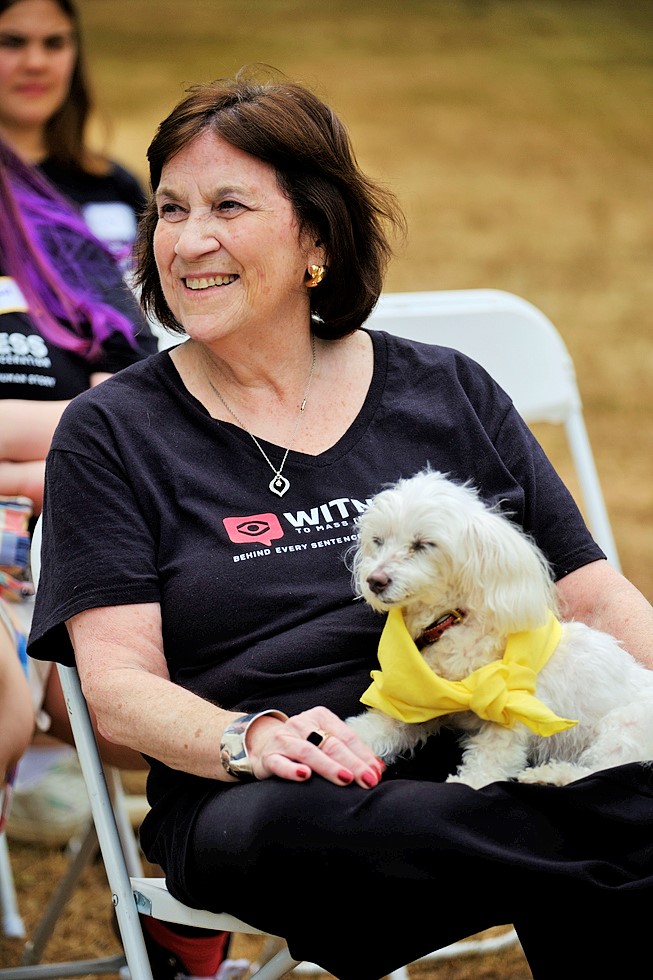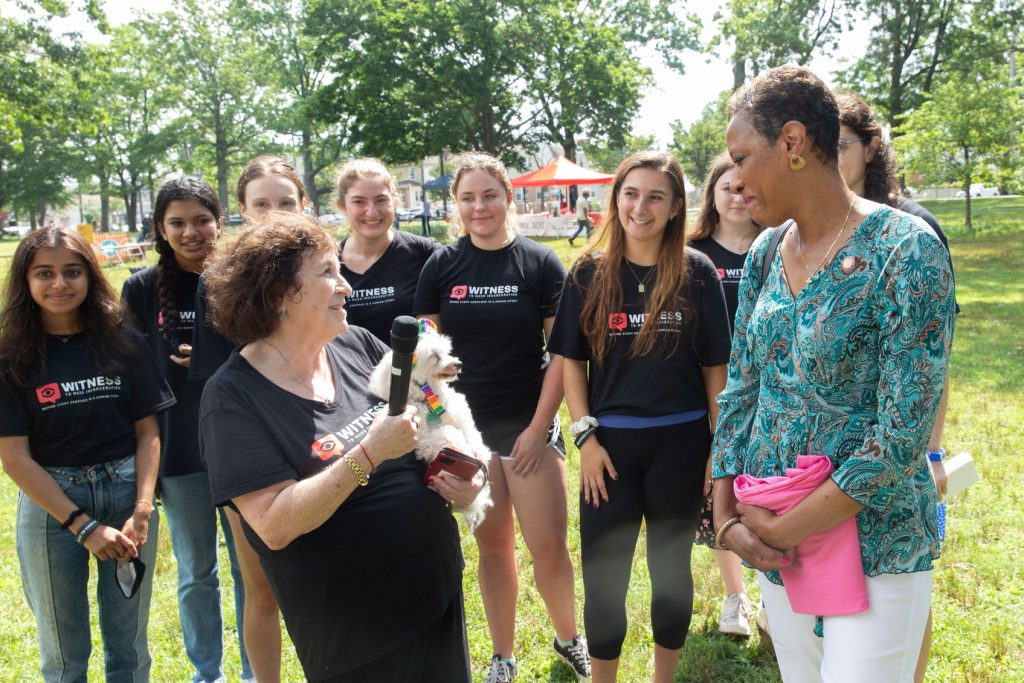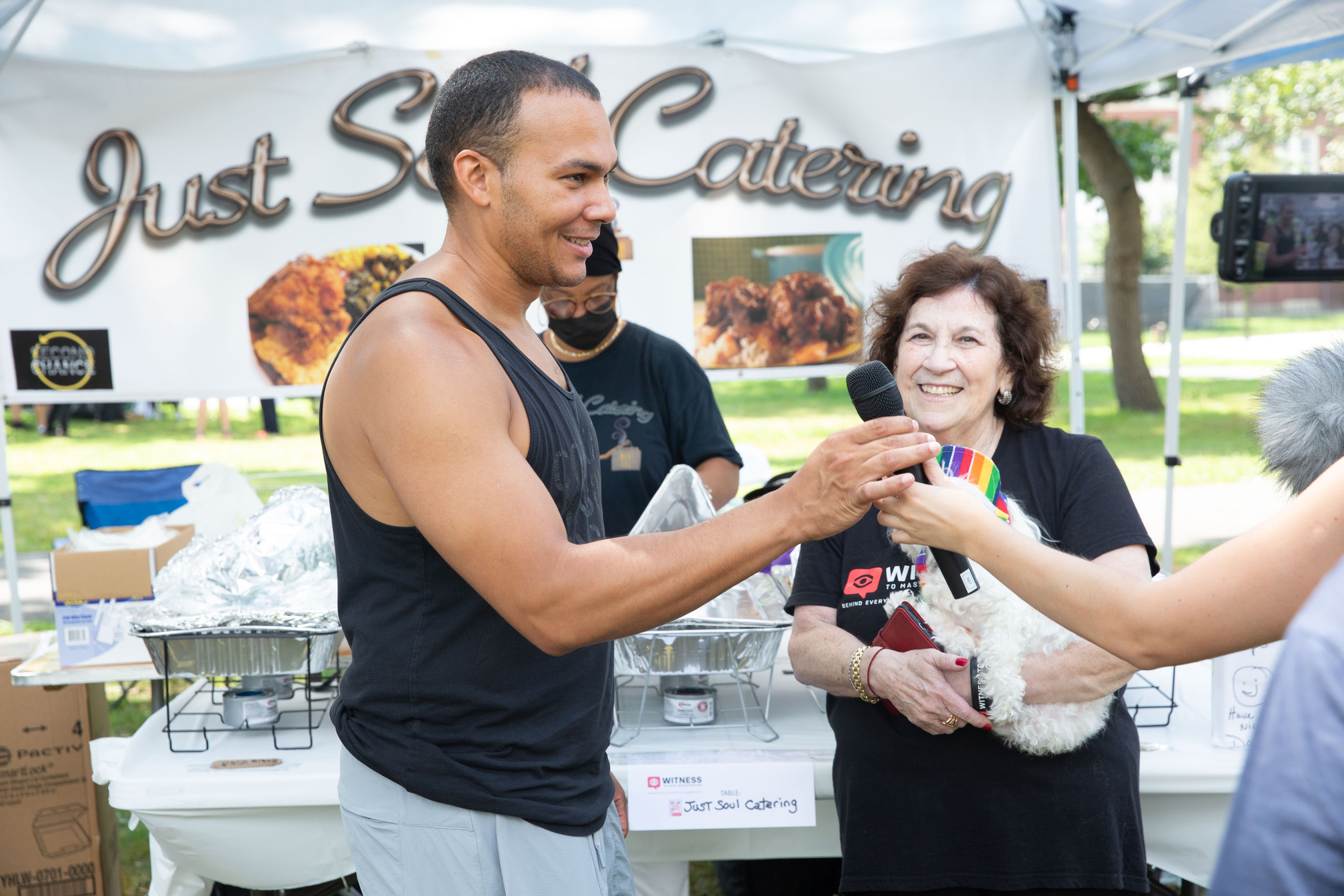BY THE VILLAGE SUN | Evie Litwok of Witness to Mass Incarceration (WITNESS) and Coss Marte of CONBODY, were both thrilled when they saw the request for proposals (RFP) issued by Congressmember Dan Goldman’s office for “community project funding” in the representative’s district. The funding will be allocated to 15 nonprofit organizations, each of which will use the money to build or renovate a building.
Goldman’s District 10 includes all of Manhattan roughly south of 14th Street, plus a large swath of western Brooklyn spanning from DUMBO to Borough Park.
Litwok and Marte had worked together before. They had one thing in common, they were both formerly incarcerated. Last winter was brutally cold and Litwok asked Marte to join her to raise money to provide hats and gloves for every incarcerated person at Rikers Island. After receiving permission from the city’s Department of Correction, they raised $45,000 and sent 5,594 sets of hats, gloves and socks to Rikers.
Litwok saw the community project funding as an opportunity to create a space that would provide economic mobility and stability for formerly incarcerated people (FIP) and called Marte to see if, by chance, he had access to a building in the Lower East Side that could be used. Marte did, and together they are applying to renovate 98 Forsyth St., a five-story-tall tenement, as a training space for formerly incarcerated people in specific trades that would allow them, after completing training, either to get a job or start their own business.

FIP face tremendous barriers finding employment, according to advocates. Litwok did when she was released from prison in 2014. She assumed that with 30 years of work experience, she would be able to get a job. However, after submitting 200 job applications and hearing back from no one, she decided her best option was to create her own organizations and she formed WITNESS.
She saw that hundreds of people in New York City were doing the same. So she decided to focus WITNESS’s efforts on building an economic infrastructure for businesses and services led by FIP. She met Marte at an annual event she organized called Suitcase Sunday, held in Queens’ City Council District 28, represented by Speaker Adrienne Adams. The day showcases FIP-led businesses and invites the public to buy their goods and services. This grew out of the Suitcase Project, which started as Litwok wanting to give a suitcase with a computer and phone worth about $2,000 to each recently released prisoner.
Marte is a lifelong Lower East Side resident and works to help the large contingent of FIP living in the area. Should they receive the $3 million in funding for the renovation, Litwok and Marte plan to build a commercial kitchen, a manufacturing facility, a fitness center and a working space to provide training and support for FIP starting out or wanting to scale up their existing new businesses. Not only would this be a great new facility for the Lower East Side, Litwok and Marte say, but it would also help the large population of FIP living in the neighborhood to have a path toward economic stability.
The proposed facility would also bolster the New York City network of FIP-led businesses Litwok is trying to create through a WITNESS initiative, The MAP Project, an online directory of FIP-led businesses.
The commercial kitchen at the Forsyth Street building would be run by Antwoin Guttierez of Fresh Taste Bakery, known for his carrot cake cookies and alcohol-infused desserts. He would train FIP in dessert making.

The manufacturing plant would be run by Alessandro Arguello of About the Stitch, a premier tailor studio, who would train people to work on manufacturing machines, plus teach some to sew and hem and be able to build their own business.
The fitness center would be run by Marte, who has established himself as a fitness guru on the Lower East Side with his personal-training business, CONBODY.
Litwok would run the training center and establish partnerships to support the promotion, networking and infusion of capital needed for the iniative to succeed.
In a quote for both himself and Litwok, Marte said, “I believe this project is extremely important for the neighborhood because of the lack of opportunities for formerly incarcerated individuals that live in the Lower East Side. This will not only provide training but it will assist individuals to become economically stable. We are really looking forward to seeing this project come to fruition and bring more resources to our community.”
Each year across the United States, 650,000 people are released from prison. In New York City, the reentry services that have existed for 30 years do provide meals, MetroCards, employment training and other things — but, as Litwok and Marte note, long-term employment is the most important vehicle to reducing recidivism. Although the unemployment rate among FIP is five times higher than for the general public, the former are actively searching for jobs.
“In 30 years of reentry services, recidivism has not been reduced,” the two said. “We propose a transformational approach which targets economic development as the key to rebuilding a life after prison. Our version of economic development means creating social-enterprise solutions and fostering a movement for economic empowerment that will build generational wealth for formerly incarcerated people.”


Be First to Comment